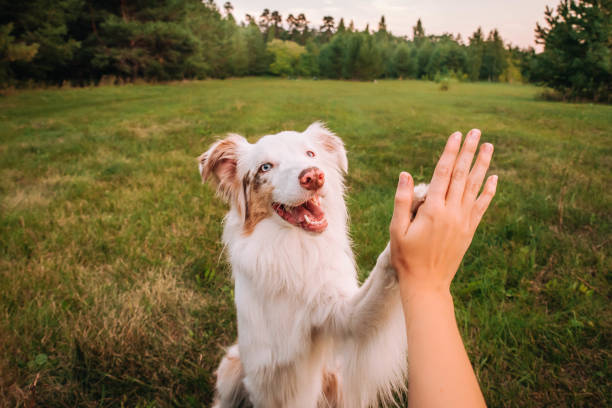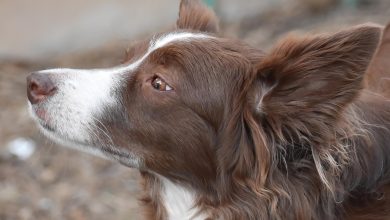Socializing Your Dog: Expert Tips for a Well-Adjusted Pup

Introduction
Bringing a new puppy into your home is an exciting and joyous occasion. However, it also comes with great responsibility. One crucial aspect of raising a well-adjusted dog is socialization. By exposing your puppy to a variety of experiences and stimuli, you can help them develop into confident and well-rounded adult dogs. In this article, we will explore effective tips for socializing your dog and ensuring their emotional well-being.
The Importance of Socialization
Socialization plays a vital role in shaping your dog’s behavior and temperament. Ideally, you should start socializing your puppy between 8-12 weeks of age, as this is a critical period for learning and adaptation. During this time, puppies are more receptive to new experiences, and their fear response is relatively low. By introducing them to different people, animals, environments, and stimuli, you can help them build positive associations and reduce the likelihood of fear-based aggression or anxiety later in life.
Gentle Handling and Physical Contact
One of the first steps in socializing your puppy is to get them comfortable with gentle handling and physical contact. Start by touching them all over their body, including their paws, ears, and tail. Use a soft and reassuring tone of voice while doing so. This process will help them become accustomed to being touched and handled, which will be beneficial for grooming, veterinary visits, and other necessary procedures in the future.
Reward your puppy with treats and praise for accepting and remaining calm during the handling sessions. This positive reinforcement will reinforce their trust in you and make the experience enjoyable for them. As they become more comfortable, gradually introduce activities such as nail trimming, teeth brushing, and ear cleaning, ensuring that they associate these activities with positive experiences.
Exposure to Different People
To raise a well-socialized dog, it’s essential to expose your puppy to a wide range of people. Introduce them to individuals of varying ages, genders, and appearances. Encourage interactions with children, men, women, and individuals wearing hats or costumes. By doing so, you can help your puppy learn that people come in all shapes and sizes and that there’s nothing to fear from unfamiliar faces.
When introducing your puppy to new people, create a calm and controlled environment. Avoid overwhelming them with too many new faces at once. Instead, start with one person at a time and gradually increase the number as your puppy becomes more comfortable. Provide treats and positive reinforcement to associate these interactions with positive experiences.
Puppy Play Dates
Organizing puppy play dates is an excellent way to socialize your furry friend. Interaction with other puppies or well-behaved adult dogs can help them learn proper social cues and develop appropriate play behaviors. When arranging play dates, ensure that the other dogs are up to date on their vaccinations and have a friendly temperament.
Supervise the play sessions and intervene if any aggressive or overly rough behavior occurs. Encourage positive interactions and playfulness. These play dates will not only provide an opportunity for socialization but also help your puppy burn off excess energy and develop important social skills.
Exposure to Different Environments
Introducing your puppy to various environments is crucial for their socialization process. Take them for walks in different neighborhoods, parks, and pet-friendly establishments. Expose them to different surfaces, such as grass, sand, and pavement. This exposure will help them become familiar with different sights, sounds, and smells, making them more adaptable and confident in new environments.
Start with quieter and less crowded areas, gradually progressing to busier places. Monitor your puppy’s behavior and body language during these outings. If they show signs of nervousness or fear, give them space and positive reinforcement. Over time, they will become more comfortable and better equipped to handle new environments.
Desensitization to Common Noises
Dogs can be sensitive to loud or sudden noises, which can trigger fear or anxiety. To help your puppy become more resilient, gradually expose them to common household noises and other sounds they may encounter in daily life. Start with lower volume levels and gradually increase as their comfort level improves.
Some noises you can desensitize them to include vacuum cleaners, hairdryers, doorbells, sirens, and thunderstorms. Use positive reinforcement techniques, such as treats and praise, to create positive associations with these sounds. This desensitization process will help your puppy remain calm and composed in various situations.
Interaction with Other Animals
Socializing your puppy with other animals is an essential part of their development. However, it’s crucial to prioritize their safety and well-being. Before introducing your puppy to other dogs, ensure that they are fully vaccinated and that the dogs they interact with are also up to date on their vaccinations.
Start by arranging controlled meetings with well-behaved and friendly dogs. Choose dogs that are known to be calm and social. Monitor the interactions closely, intervening if any signs of aggression or discomfort arise. Positive experiences with other animals will help your puppy develop appropriate social skills and reduce the likelihood of fear-based aggression towards other animals in the future.
Positive Associations with Veterinary Visits
Visiting the veterinarian can be stressful for both puppies and adult dogs. To help your puppy feel more comfortable during veterinary visits, create positive associations with these experiences. Take them to the veterinarian for friendly visits, where they receive treats and praise without any medical procedures being performed.
This practice will help your puppy associate the veterinarian’s office with positive experiences and reduce fear or anxiety. Additionally, reward them for calm behavior during actual veterinary procedures, such as vaccinations or check-ups. By doing so, you can make veterinary visits less stressful and ensure your puppy’s overall well-being.
Continued Socialization as Your Dog Grows
Socialization should be an ongoing process throughout your dog’s life. Even after the critical socialization period in puppyhood, it’s important to expose them to new experiences, people, and environments. Regularly engage in activities that challenge and stimulate them mentally and physically.
Continue to provide positive reinforcement for desired behaviors and monitor their interactions with other dogs and animals. If you notice any signs of fear, anxiety, or aggression, consult a professional dog trainer or behaviorist for guidance and support.
Conclusion
Socialization is a crucial aspect of raising a well-adjusted dog. By exposing your puppy to a variety of experiences, people, and environments, you can help them develop confidence, reduce fear-based aggression, and ensure their emotional well-being. Remember to be patient, use positive reinforcement, and monitor your dog’s body language throughout the socialization process. With dedication and consistency, you can raise a happy and socially adept canine companion.


